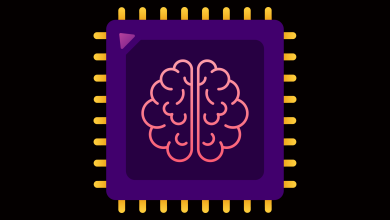
Alan Jacobson, Chief Data and Analytics Officer at Alteryx
Businesses in every industry and knowledge workers in every domain are needing to do more, faster than ever before. The need for automation and the ability to glean insights from data continues to rise. Years ago, the only solution to automation and insight generation was to hire developers and data scientists to build solutions capable of delivering answers, but the pace of change is now to the point that centralized teams can’t move fast enough. Businesses need a more democratized approach. One where domain experts, from finance professionals to marketing analysts or logistics experts, are all learning to automate processes and use accessible, advanced analytics – well beyond the spreadsheet they learned when entering into the field.
Digitally enabled knowledge workers bring nearly immediate business impact. From college interns with little domain experience capable of picking up these skills and unlocking huge opportunities in weeks to experienced domain professionals able to quickly make million-dollar impacts – all through uncovering data insights. With an exponential growth in the volume of data being created and captured each day, the reality is that while these skills can help companies survive turbulent times, the lack of these analytic capabilities will remain an existential threat. As competitors become digitally savvy, a business’s survival will depend on having a data-literate and enabled workforce capable of using more than a spreadsheet to analyse and automate processes.
Today, the most timely and impactful decisions need to be informed by data rather than gut instinct – enabling businesses to react quickly and accurately to disruption or competitive change in minutes, and not days. The challenge, however, comes from not only collecting that data, but also from cleaning, preparing, and loading that data into automation technology.
While the pandemic effectively saw businesses fast track digital transformation, investments in technology such as AI in an effort to increase efficiencies. Organisations that used to spend days and weeks manually repeating tedious and time-consuming manual processes are now turning to data science and AI-powered algorithms to shrink the time and skills barriers needed to make critical decisions and gain an edge so as to get ahead of the competition.
According to an Alteryx-commissioned global survey by IDC released in February 2022, 62% of practitioners and 75% of mid-to-upper management are now expected to use data to make agile and scalable data-driven decisions. Far fewer have the skills necessary to actually meet that expectation.
Setting the foundations for business resilience through AI automation
Despite this clear appetite for AI-facilitated decision-making, many businesses still struggle to unleash the full potential of responsible and ethical AI breakthroughs. While the overall benefit of faster, repeatable, split-second decisions is self-evident, not all AI projects are equal.
AI innovation is not something that can be picked up from a supermarket shelf. Each and every AI model is custom-built and fed with unique data to train its decisions. This bespoke approach, therefore, requires a strong foundation of domain knowledge and an analytical mindset. Even with a highly skilled data science team, it is critical that business operators are part of the journey. The good news is that many problems can be solved quickly and efficiently with data.
AI programs can either accelerate, impact, or severely stall business efforts without people capable of refining raw data for insights. One great example during the pandemic is the use of real-time shipping data alongside internal supply chain data to automatically adjust inventory levels and re-order points based on live shipping times. This application of AI, automation, and domain expertise has saved companies millions of dollars while helping stabilize supply chains.
Training teams alongside AI models
AI is, in short, one big pattern recognition machine – albeit one shrouded in jargon. Users train the AI model by feeding it data and then ask it to predict outcomes based on that data. While automation and accessible AI are powerful tools for delivering timely knowledge needed to make strategic decisions, these technologies only become valuable resources when combined with human intelligence. Data literacy and ethics still go hand in hand when developing and deploying trustworthy AI capable of augmenting and complimenting human capabilities.
According to a report by Gartner, a key factor for any successful AI deployment is a strong level of data management and analytical maturity due to a high dependency on reliable, high-quality data.
Today, data is knowledge, and knowledge is power, but with only a fraction of today’s business data accessed and analysed, the successful use of AI on an organisational level requires a significantly expanded strategy – one that focuses on providing wider access to data, analytics for all and initiatives to educate, upskill and reskill people in data literacy.
The difference between future AI success and failure rests on upskilling and recruitment strategies built upon a strong foundation of multiple, diverse viewpoints. The key to the mainstream development of successful and ethical AI does not rest on a small silo of hard-to-find experts but an emphasis on an ongoing effort to build a broader data culture within the business. Only then will it gain a broader understanding of what AI can do and where it will be most beneficial.
Delivering the benefit of AI-driven decisions
Accessible, repeatable, and ethical AI-driven insights open up a wealth of possibilities to move beyond the hype of AI and operationalise responsible AI – effectively serving as the backbone for trusted, timely business decision intelligence. Successful AI systems are primarily dependent on the quality of training data, the transparency of the internal governance processes, and the skill levels of the humans involved in its creation.
When done well, the business outcomes from a data science approach to AI innovation could futureproof the business by building faster, better, and stronger – the superman of organisations. But to do so requires a data-centric strategy at the forefront. Only those able to harness automation and AI to tame the complexity, power the refinement, and analyse the terabytes of raw data for fast and sound decisions will be able to drive high-value ethical business outcomes that deliver distinct advantages.



